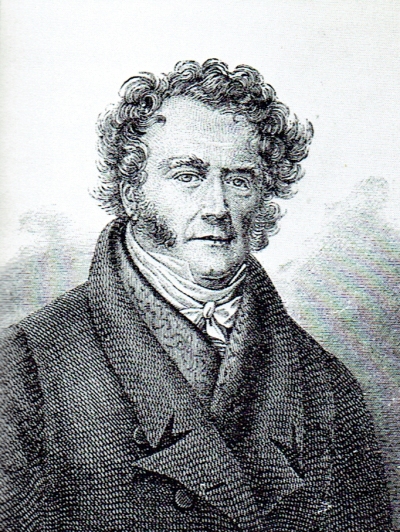Vidocq – The First Detective
Eugene Francois Vidocq, born in 1775, was a thief turned detective, Europe’s first bona fide private eye. At fourteen he killed a fencing master in a duel and this incident paved the way to a life of crime. After serving his time as a convict in the galleys, Vidocq became a police spy and later the head of the Paris Surete.
Eugene Francois Vidocq
A powerful physical specimen with a leonine head and muscular arms, Vidocq was the son of a respected baker from Arras. After killing the fencing instructor Vidocq stole two thousand francs from his father’s safe and fled to America. However, within a year he was destitute and so returned to the family home.
Back in France he joined the Bourbon Regiment and within six months he was involved in no less than fifteen duels. His thirst for action produced many brave acts, particularly in a battle at Valmy in 1792. However, far from being regarded as a hero, Vidocq’s violent acts led to his banishment from his home town.
A period of womanizing and gambling followed and at times Vidocq was arrested, only to escape – in Toulon he fell in behind a funeral cortege and walked to freedom.
A life of serious crime beckoned though Vidocq, for all his misdeeds, had no wish to travel down that road. Instead he met with a Paris policeman called Henry, nicknamed the Bad Angel and the two men struck a deal – an amnesty if Vidocq became a secret police agent. Faced with a lengthy spell in prison, Vidocq could hardly refuse.
A natural, Vidocq soon adapted to undercover police work and the man became something of a legend, both in the Paris police and the criminal underworld. His physical gifts and his detective skills ensured that by 1811 he was serving as the first full-time detective in the Paris police. Gaining in confidence and influence he proposed the creation of the Surete, a proposal that was readily accepted.
The Surete with its twenty-four full-time agents and network of police spies soon became a great success in fighting crime. The agents were not paid a salary. Instead, they were rewarded with expenses and a fee for every arrest.
At heart, Vidocq was a showman and he ensured maximum publicity for every success. His reputation helped to secure a decent pension and he retired in 1827, aged fifty-two. However, in retirement he was far from idle. He opened a paper mill, employing former criminals in an effort to rehabilitate them. Sadly, this public-spirited venture was not a commercial success and, insolvent, Vidocq was forced to return to the Surete.
In 1836 Vidocq retired for a second time and on this occasion he set up a private detective agency, twenty years before Pinkerton established his agency in Chicago. Playing a game he knew well, Vidocq ensured that his agency was a great success, often outflanking the police in the best traditions of detective fiction. Unfortunately success brought jealousy and Vidocq’s offices were raided by the police. Over three thousand files were seized, many of them police files, and Vidocq was arrested on charges of corrupting the civil service. Vidocq was convicted, but won an appeal. However, the bad publicity surrounding his arrest brought the curtain down on his agency.
Insolvent again, Vidocq turned to his pen. He wrote Memoirs of Vidocq, Principal Agent in the French Police. With the aid of a ghost writer the memoirs were a great success. Blending fact with fiction Vidocq’s stories were the earliest of their type and they went on to influence the cultural perception we have of the private eye.
After leading a colourful life Vidocq was finally granted a pardon in 1843. His legacy as a policeman is a substantial one, yet you could argue that his memoirs are more important because they paved the way for the plethora of Victorian detective stories that followed and still influence the detective fiction we read and write today.

